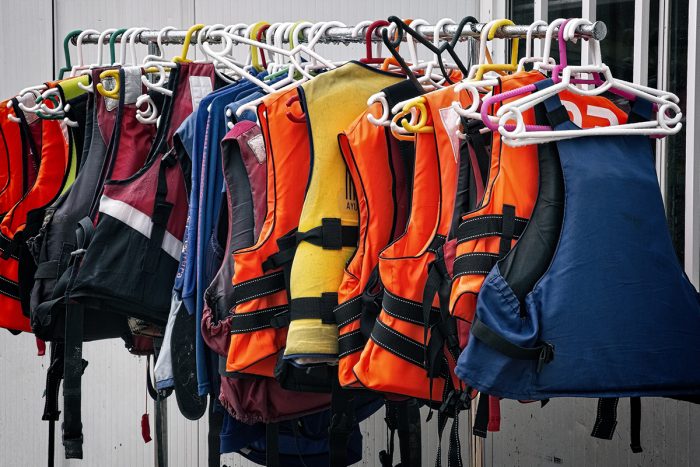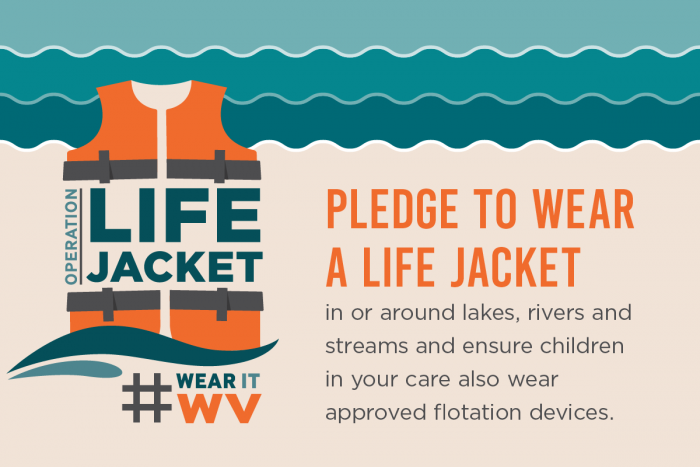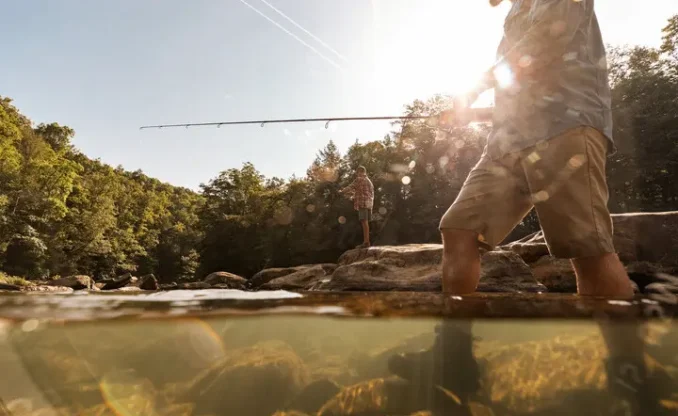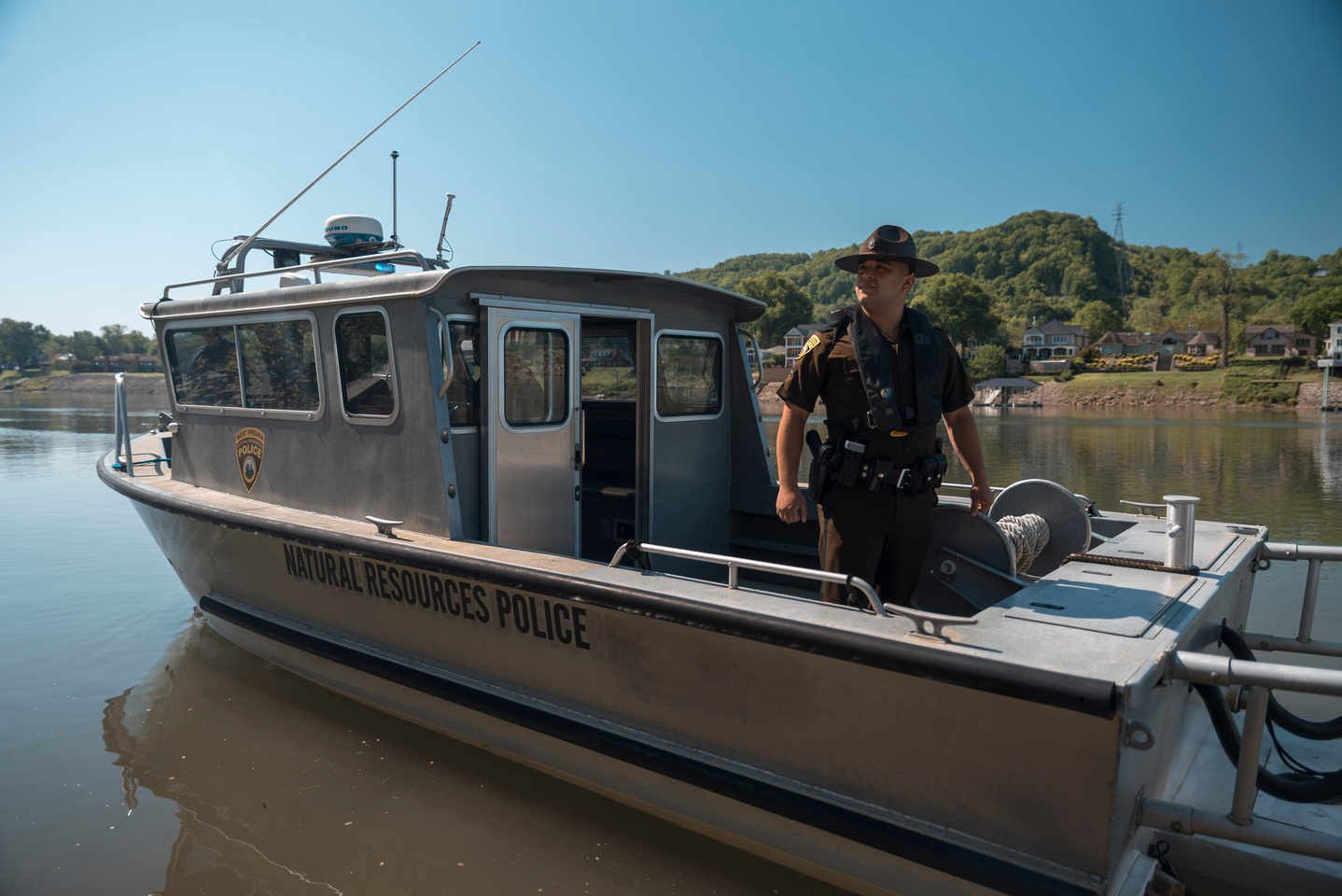WVDNR examines common misconceptions about who needs a life jacket, how they fit and when they’re required
When it comes to wearing a life jacket while boating, there are many myths and misconceptions that people have come to believe. For example, you’d be surprised how many people think they don’t need to wear a life jacket if they know how to swim or if they’re on a large boat with other people. They couldn’t be more wrong.
The sad reality is that nearly 80 percent of people who die in boating accidents are not wearing life jackets. As we gear up for another summer of water adventures in West Virginia, it’s crucial to set the record straight about life jackets, also known as personal flotation devices (PFDs).
In this blog, we’ll examine five common myths about life jackets, explain why these misconceptions are wrong and encourage you to take PFDs seriously. Because your life depends on it.
Life jacket law in West Virginia
Before we debunk common myths about life jackets, we first want to make sure you know what West Virginia law requires for boaters. When you’re on our state’s waterways, adherence to these regulations not only ensures compliance with the law, but more importantly, your safety and that of your fellow adventurers.
Here’s what you need to know when it comes to life jackets:
- West Virginia law requires each person on board to have a life jacket that is in good condition, fits properly, is within easy reach and meets U.S. Coast Guard standards.
- Every child under 13 who is on board a moving vessel must be either wearing a USCG approved PFD that fits properly or be below deck or in a closed cabin.
- In addition to PFD requirements, vessels 16 feet and over must have a throwable Type IV PFD ring or cushion on board that can be thrown to a person in the water.
- View the current West Virginia Boating Rules and Laws
So, what does this mean for you? It means safe boating isn’t just a recommendation — it’s the law and using a proper life jacket is a vital step toward safeguarding your well-being on the water.

Myth: I’m a strong swimmer, so I don’t need to wear a lifejacket
Some people mistakenly believe their swimming abilities are sufficient protection against drowning, leading them to forego wearing a life jacket while boating. They trust in their skills to keep them afloat in case of an emergency, assuming they can easily swim to safety if needed.
How believing this myth can get you killed: Even the strongest swimmers can encounter unexpected challenges on the water. Accidents happen without warning, leaving little time to react. If you’re in turbulent waters or strong currents or if you become injured, swimming abilities may be rendered ineffective, putting even the most confident swimmers at risk of drowning.
The truth about life jackets: Wearing a life jacket is not a sign of weakness but a precautionary measure that can save your life.
Myth: Lifejackets are only for inexperienced boaters
Some people mistakenly believe that only novice or inexperienced boaters need to wear a life jacket. They trust their experience on the water, assuming their navigation skills will protect them from an incident where they would need a personal flotation device.
How believing this myth can get you killed: Even experienced boaters can underestimate the potential dangers of water activities. Regardless of skill level, no one is immune to accidents, sudden changes in weather, equipment failure or other unforeseen circumstances that can result in a life-threatening situation.
The truth about life jackets: An experienced boater is a safe boater and a safe boater takes life jackets seriously.
Myth: I only need a lifejacket if I’m going boating in rough waters
Some people mistakenly believe that wearing a life jacket is only necessary when navigating rough or challenging waters. They assume that calm conditions pose minimal risk and therefore neglect to wear a life jacket during leisurely boating activities.
How believing this myth can get you killed: Underestimating the importance of wearing a life jacket in calm waters can be perilous. Accidents such as collisions with other vessels, sudden medical emergencies or unexpected falls overboard, can occur even in seemingly tranquil conditions . Without a life jacket, individuals may find themselves unable to stay afloat or call for help, increasing the risk of drowning.
The truth about life jackets: Life jackets are essential safety equipment for all boating activities, regardless of water conditions.

Myth: Carrying life jackets on the boat is good enough
Some people mistakenly believe that just having life jackets on board is sufficient to meet safety requirements. They may assume that as long as life jackets are accessible, they’re adequately prepared for emergencies..
How believing this myth can get you killed: Relying solely on the presence of life jackets on the boat can be a dangerous misconception. In an emergency situation, there may not be enough time to locate and put on a life jacket, especially if the wearer is already in distress or incapacitated. Additionally, unexpected events like a rapid capsizing or being thrown overboard can separate individuals from the boat and its stored life jackets, leaving them unprotected in the water.
The truth about life jackets: By wearing a properly fitted life jacket, you significantly reduce the risk of drowning and increase your chances of survival in any unforeseen circumstances on the water.
Myth: Lifejackets are uncomfortable and restrict movement
Some people avoid wearing life jackets because they mistakenly believe they are uncomfortable and hinder their ability to move freely and enjoy their boating experience to the fullest.
How believing this myth can get you killed: Fearing discomfort or restricted movement, individuals may choose not to wear a life jacket while boating. However, in the event of an emergency, such as falling overboard or encountering rough waters, the absence of a life jacket can quickly turn fatal. Without proper buoyancy, individuals may struggle to stay afloat and could become exhausted, increasing the risk of drowning.
The truth about life jackets: Modern advancements have made life jackets more comfortable and less restrictive to suit every preference and body type, providing peace of mind and ensuring your safety on the water.

Sign up for a boater safety course today
From underestimating the importance of life jackets in calm waters to relying on your boating skills to keep you safe, misconceptions about life jackets have dire consequences. That’s why prioritizing boating safety is crucial for everyone on the water, regardless of experience or conditions.
Life jacket safety is just one important component of our boater education course, which you are required by state law to complete before you can legally operate a motor boat or personal watercraft on any water in West Virginia if you are born on or after Dec. 31, 1986.
Register for a free in-person class or complete one online through a state-approved vendor for a fee. To learn more, visit WVdnr.gov/boater-education.




